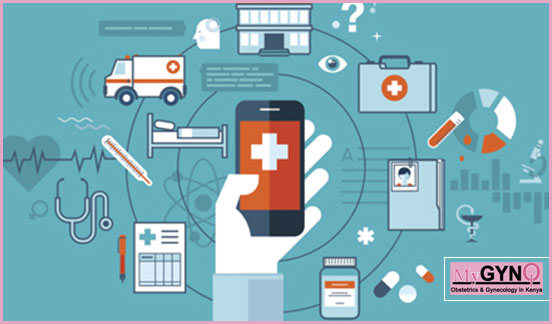- Clinic:
- 0733 945 717
- 0739 434 212

Don’t capitalize on informal encounters with doctors
August 10, 2020
Missed medical appointments are a waste of resources
August 17, 2020Healthcare should routinely embrace modern technology

Technology is a key driver for almost all industries. The healthcare industry isn’t any different, all aspects of healthcare must be driven by modern technology. There must be ready acceptance to do away with antiquated systems. And an equal measure of willingness to invest in technology that improves efficiency of service delivery. Patients must expect, or even demand, that their healthcare providers take full advantage of the revolution in health tech.
Those of a certain age will remember the days of voluminous and tattered health records. This was coupled with poorly managed, or even inexistent, appointment systems. Hence the ever unending queues in doctors’ offices, and all other service delivery points. Easy communication with doctors was almost unheard off, phones weren’t easily available, and emails hadn’t become mainstream. Even the most mundane of symptoms required a physical encounter, e-consults were completely alien.
But you don’t need to look far to see a semblance all those age-old service delivery practices still going on in many facilities. Why is that the case with the ready availability of modern health tech? Beats me. Modernizing health records to a digital platform has many advantages, and eases access and storage. Automated appointment systems that allow self-bookings and cancellations can easily improve efficiency. Hardly anyone requires return appointments to discuss normal results or get reviewed unnecessarily. Phone calls, emails and e-consults can easily decongest doctors’ waiting rooms.
If your healthcare provider has been slow to adopt health tech, you need to check why, prompt them, or migrate to where modernity is the norm. Why should you struggle booking appointments? If you can’t self-book online, or with a simple phone call, look elsewhere. Check if e-consults are on offer, saves you both time and money, and can be done in the convenience of your home or office. You also want the convenience of making very few physical visits to your doctor. Prescriptions can be emailed, and the meds delivered to your door. Any follow-ups can be done via tele-medicine, with enabled remote gadgets as appropriate. The adoption of health tech is limitless.
Healthcare service delivery must embrace modern technology, while still maintaining desirable aspects of traditional practices. And the adoption of health tech isn’t only in aspects that involve direct patient interactions. There must also be tech driven backend operations, like automations for repetitive tasks within healthcare facilities. Initial investments may appear excessive, but the payout in the long run is worthwhile. There are ample gains in accessibility, efficiency, cost-savings and patient satisfaction.
It’s up to you to decide how and where you seek healthcare. Much of it can be done at your convenience, all enabled by modern technology. But you can choose to accept your current healthcare provider’s antiquated ways of delivering care to you. Those who shun technology are a dying breed.
Dr Alfred Murage is a Consultant Gynecologist and Fertility Specialist. amurage@mygyno.co.ke
Take a fertility test today